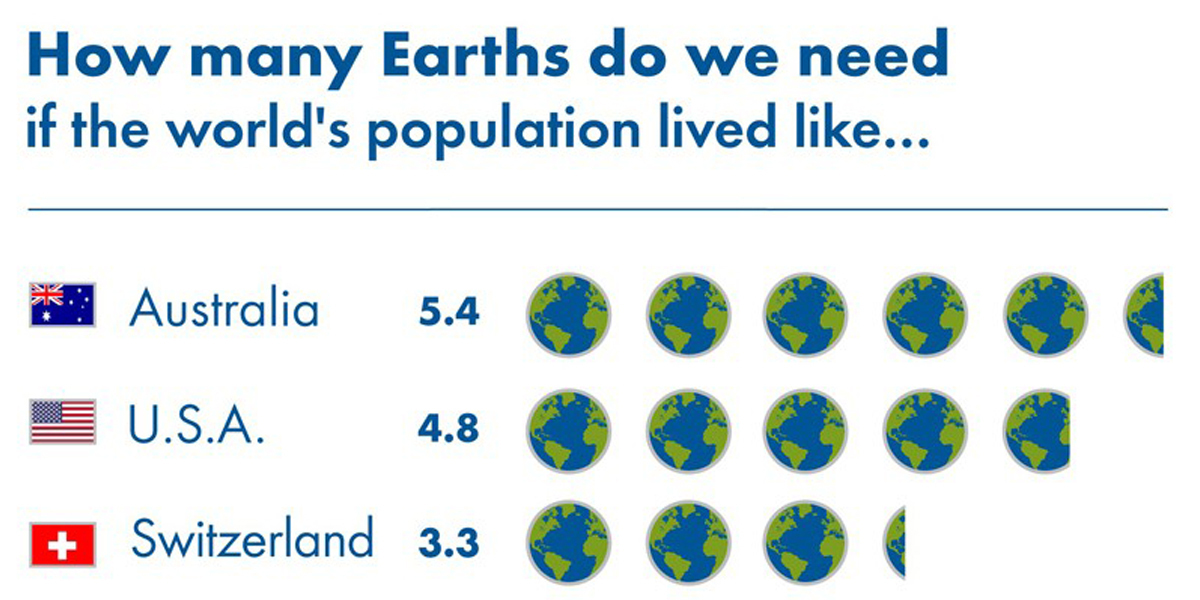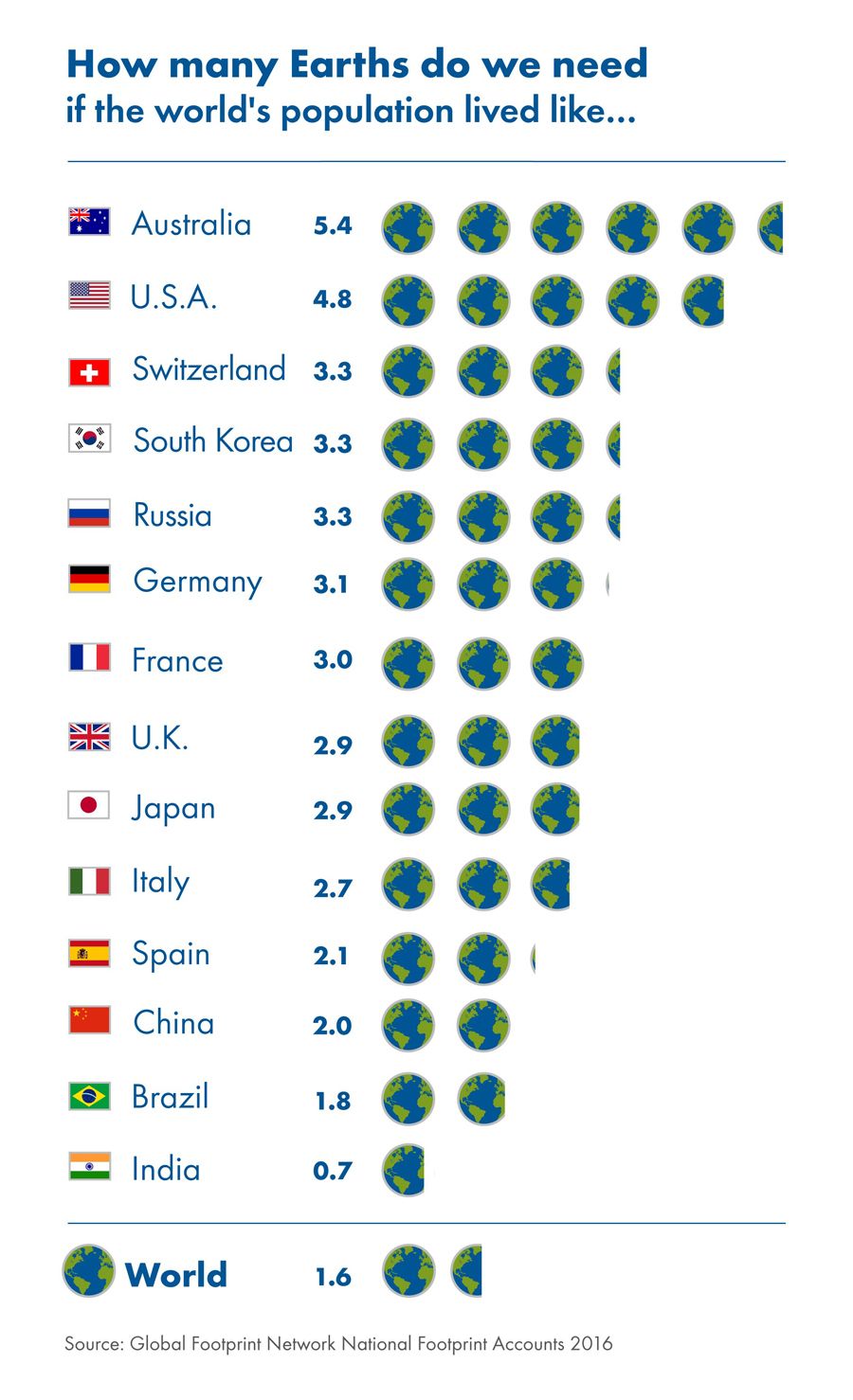

Humanity will hit
Earth Overshoot Day five days earlier than
last year. This coming Monday, Aug. 8, we will have officially used up nature’s budget for the entire year, according to the international research firm Global Footprint Network. Last year’s overshoot day was on Aug. 13.

“We continue to grow our ecological debt,” Pascal Canfin, the French head of the World Wildlife Fund, told
AFP in reaction to the news.
“From Monday, August 8, we will be living on credit because in eight months we would have consumed the natural capital that our planet can renew in a year.”
This is the quickest rate that humans have outstripped what the planet produces in a year.
But as you can see in this tweet, this unfortunate milestone has happened
every year since 1981 when Earth Overshoot Day was on Dec. 14. What’s concerning is that we hit this point earlier almost every time.
Earth #Overshoot Day is early this year! See how the date evolved over time: https://t.co/h6BkW5egWA @EndOvershoot pic.twitter.com/ZUk1cM2rh9
— ChainPoint (@ChainPoint) July 19, 2016
Compared to the 1960s, humankind only spent three-quarters of Earth’s annual resource allotment. However, by the 1970s, economic and population growth has driven Earth into this annual downward trend.
“We are emitting more carbon dioxide into the atmosphere than our oceans and forests can absorb, and we deplete fisheries and harvest forests more quickly than they can reproduce and regrow,” the Global Footprint Network said.
“Carbon emissions are the fastest growing contributor to ecological overshoot, with the carbon footprint now making up 60 percent of humanity’s demand on nature, which we call its Ecological Footprint.”
At this rate, the world needs the resources of 1.6 Earths in order to sustain demand for nature’s resources, the Global Footprint Network calculated. It would take 4.8 Earths if everyone lived like people do in the U.S. and 5.4 Earths if everyone lived like Australia.

With a projected human population growth from 7.3 billion today to 11.2 billion by 2100, this will only put more strain on Earth’s limited resources even more as more carbon is emitted and more land is cleared to provide food.
However, the Global Footprint Network noted that the goals set by the
Paris climate agreement provides a ray of hope.
“Such a new way of living comes with many advantages, and making it happen takes effort,” Mathis Wackernagel, co-founder and CEO of Global Footprint Network, said. “The good news is that it is possible with current technology, and financially advantageous with overall benefits exceeding costs. It will stimulate emerging sectors like renewable energy, while reducing risks and costs associated with the impact of
climate change on inadequate infrastructure. The only resource we still need more of is political will.”
“The Paris climate agreement is the strongest statement yet about the need to reduce the carbon Footprint drastically. Ultimately, collapse or stability is a choice,” Wackernagel added. “We forcefully recommend nations, cities and individuals take swift, bold actions to make the Paris goals an attainable reality.”
The organization pointed out that many countries have taken steps in the right direction to reduce their ecological footprint:
Fortunately, some countries are embracing the challenge. For instance,
Costa Rica generated 97 percent of its electricity from renewable sources during the first three months of 2016. Portugal, Germany and Britain also demonstrated groundbreaking levels of renewable energy capability this year, when 100 percent of their electricity demand was met by renewables for several minutes or, in the case of Portugal, for several days. In China, meanwhile, the government has outlined a plan to reduce its citizens’ meat consumption by 50 percent, which it calculates will lower the carbon dioxide equivalent emissions from China’s livestock industry by 1 billion tonnes by 2030.
The Global Footprint Network also encourages individuals to make a positive difference on the environment. The organization has launched a social media campaign with the hashtag #pledgefortheplanet where you can make planet-friendly pledges such as reducing waste, hosting vegetarian meal parties, lowering your energy consumption or more for special prizes.
I will unplug chargers and electronics when not in use. RT to #pledgefortheplanet → https://t.co/UJGQ7rt8Zh pic.twitter.com/kxlFAIuoVq
— WWF (@WWF) August 4, 2016

 233k
233k  41k
41k  Subscribe
Subscribe 